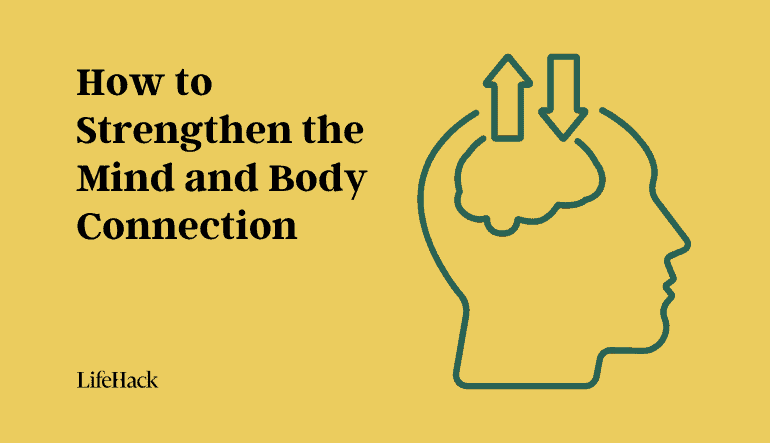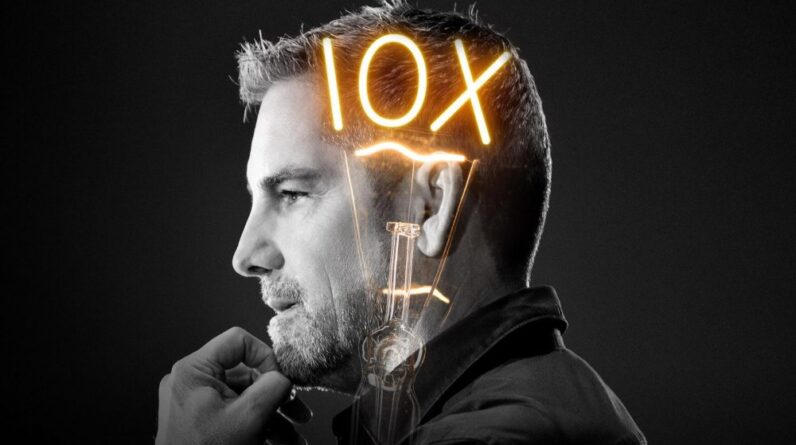
Do you believe it is possible to have a positive self-image? Is it plausible that our mental perception of the world is guiding our immune system in a way that makes us respond better to future threats?
As observed with women over 40 years old struggling to lose weight, thoughts do have an impact on our overall health. This shows our emotions, feelings, beliefs, and attitudes can positively or even negatively affect our bodies physically.
Leading scientific research suggests that our minds can play a very important role in keeping our bodies healthy and even healing us from disease.
What is the Mind and Body Connection?
Have you ever felt so nervous, your palms started to sweat? Or felt so worried you couldn’t fall asleep at night? This is a perfect example of the mind-body connection at work. Our Physical health and emotional health are closely linked together and is what is referred to as the mind-body connection.
How Are the Mind and Body Connected?
The brain produces hundreds of chemicals that have the ability to improve your health. This includes endorphins, which are produced to help the nervous system to cope with stress or pain, and antibodies which are produced by the immune system in response to a foreign or unknown substance, to remove it from the body.
The effects of your state of mind can impact the release of these chemicals. One of the biggest examples of this is the flight or fight response. If you’re feeling stressed or anxious, your body will act as though it’s under attack and will release hormones that either prompt you to stay or run.
Your heart rate can increase, digestion slows, you might feel tense, and your senses might be heightened, all of which are triggered by feeling stressed or anxious.
If you feel ill but you maintain a positive attitude, your brain could be more likely to produce the right chemicals required to boost your immune system.
This is why being able to maintain a positive relationship with your mental and physical health is crucial to achieving overall well-being.
How to Strengthen the Mind and Body Connection
There are many techniques to connect the mind and body such as meditation, deep breathing, stress management, resiliency training, spirituality, and positive and negative thinking. Let’s dive in and learn how to connect your body and mind.
1. Meditation
According to the NIH:
“The term “meditation” refers to a variety of practices that focus on mind and body connection and are used to calm the mind and enhance overall well-being.”
Some types of meditation involve focusing your mind on a particular thing, such as your breathing, or a mantra, which is a repeated word or phrase. The most common one used is a simple syllable like “Om”.
Studies show that meditation may help reduce blood pressure, anxiety, depression, and symptoms of irritable bowel syndrome and flare-ups in people with ulcerative colitis. Meditation may also benefit people with insomnia.
Additional studies show that the positive effects of mindfulness-based meditation on depression can last for six months or more and may prevent relapse.
2. Deep Breathing
Similar to meditation, deep breathing techniques can be highly potent and beneficial for physical and mental health and may help relieve stress and anxiety.
Yogic breathing, another name for deep breathing, is the control of the breath in and out of the nostrils by focusing and actively causing the diaphragm to increase the flow of air in and out, as well as to manipulate the frequency of each breathing cycle.
The diaphragm is attached to the base of the lungs and it is rarely activated when breathing unconsciously. This short, shallow breathing pattern leads to less oxygen and decreased breathing efficiency.
Most of us nowadays breathe only short, shallow breaths, keeping our bodies in a constant fight or flight response, which triggers a whole host of reactions as mentioned above.
3. Stress Management
Understanding how we react when being faced with stressful situations can help us recognize how to better manage stress and anxiety going forward.
We may not be able to change our circumstances, but we can see them differently.
Sometimes, simply reframing the stressful situation can help you manage the stress by changing the way your brain interprets the events and situations and enhancing focus from a more positive perspective.
Instead of stressing in a traffic jam on the interstate, consider it a moment to take a break, listen to your favorite radio station, podcast or audio book or spend some time engaging in deep breathing exercises as discussed above.
Prioritizing your self-care is a great way to manage stress and is essential to keep us functioning well and improving our overall health.
The following aspects of our health are vital to our well-being and crucial for managing stress better. Consider the following:
- Are you getting sufficient sleep?
- Are you making time for the people you care about?
- Are you prioritizing physical activity?
- Are you eating a balanced and varied diet?
- Are you giving the focus to things you are passionate about?
- How can you open yourself more to community and spirituality?
4. Resiliency Training
Resilience is defined as the ability to successfully adapt and recover after stress, adversity, trauma, or tragedy. According to the Mayo Clinic,
“if you have a resilient disposition, you are better able to maintain poise and a healthy level of physical and psychological wellness in the face of life’s challenges.”
Resilience
can be crucial when it comes to maintaining your stress levels, which can have a huge impact on your physical health. It’s important to deal with stress in a healthy way, whether it’s through support from loved ones or changing your perspective through therapeutic methods.
5. Spirituality
Spirituality is a sense of connection or belief to something bigger than ourselves. It may also involve a search for one’s calling in life.
Finding your purpose or your “why” in life can be a great tool in making sure you are healthy both in your mind and body.
Whether it’s your career or personal life, knowing who you are and what your values are can help to keep you grounded. In some cases, it can help you make the right choices when presented with opportunities.
6. Positive and Negative Thinking
More researchers are finding evidence leading to the many benefits of positive thinking. These findings suggest that positive thinkers are healthier and less stressed, leading to greater overall health and well-being.
Some of the health benefits of positive thinking include:
- Increased life span
- Reduced risk of death from cancer, respiratory conditions and infection-related death
- Greater ability to defend against illnesses
- Improved psychological and physical well-being
- Reduced risk of death from cardiovascular disease and stroke
- Better ability to cope during hardships and times of stress
- Lower rates of depression
Negative thinking, on the other hand, can cause havoc in the body and can worsen anxiety and depression. We all have negative thoughts from time to time but the key is to control them and allow them to fade away instead of ruminating on them.
The simple process of turning a negative into a positive can be easily learned but it does take time and practice to create a new habit. Recent research suggests it takes about 59-70 days to form a habit.
If you want to become a more positive thinker, you must start by reviewing areas of your life that you usually think negatively about. Common areas are your job, your daily commute, possibly your marriage or even your body image.
You can build this habit by starting small. Focus on one area at a time and try to view it in a more positive way. If you catch yourself speaking or thinking negatively, reframe that thought with a more positive one.
Final Thoughts
The way that you feel influences the way that you think and vice versa. The mind-body connection is the link between your thoughts and your feelings. Your feelings are a bodily experience, while your thoughts are in the mind.
The power of the connection between the mind and body cannot be denied and as the research continues in this field we will continue to learn more about this amazing connection.
You may start learning strategies to create more balance in your life and deal with stress once you are aware of how stress affects your body and mind.
Try the methods mentioned to strengthen the bond of the mind-body connection.







